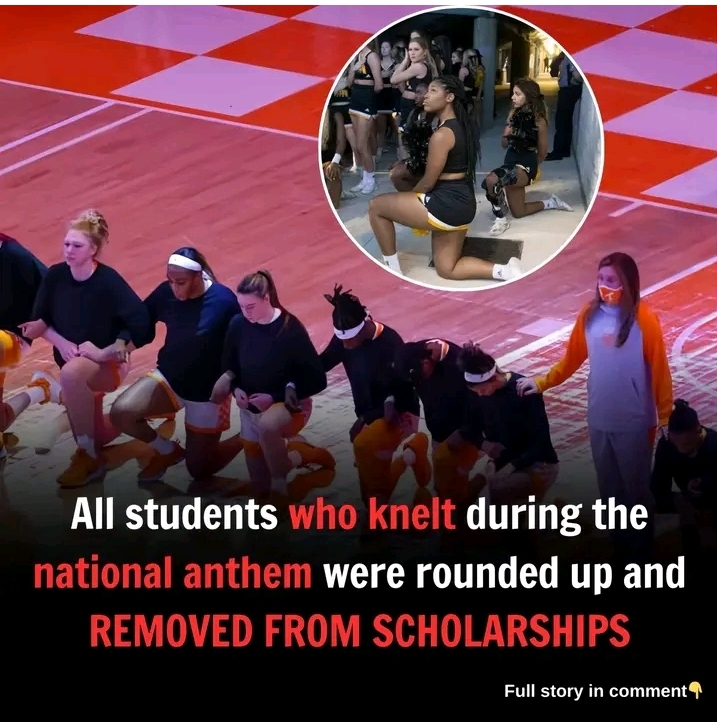CELEBRITY
KNEELING: After the University of Texas, all students who knelt during the national anthem were rounded up and REMOVED FROM SCHOLARSHIPSPublished 3 days ago on August 21, 2024By Bob kate

KNEELING: After the University of Texas, all students who knelt during the national anthem were rounded up and REMOVED FROM SCHOLARSHIPSPublished 3 days ago on August 21, 2024By Bob kate
The hypothetical scenario in which students at the University of Texas are rounded up and removed from scholarships for kneeling during the national anthem would be an explosive and controversial event, raising significant concerns about free speech, civil rights, and the role of protest in American society. Such a drastic action would likely provoke widespread outrage, legal battles, and national debate, highlighting the ongoing tensions surrounding patriotism, protest, and institutional authority.
Kneeling during the national anthem has become a powerful symbol of protest against racial injustice and inequality, particularly since it was popularized by NFL player Colin Kaepernick in 2016. For many, this act of kneeling is a peaceful form of expression, intended to draw attention to systemic issues within society. However, it has also been met with fierce opposition from those who view it as disrespectful to the flag, the military, and the nation as a whole.
If a university, particularly one as prominent as the University of Texas, were to take the step of revoking scholarships from students who engaged in this form of protest, it would likely be seen as a severe and punitive response. Such an action would raise serious questions about the institution’s commitment to free speech and the protection of students’ rights. The First Amendment of the U.S. Constitution guarantees the right to free speech, and while public universities are bound by these protections, the line between permissible protest and actions that warrant disciplinary measures can be a contentious one.
The removal of scholarships for kneeling would almost certainly be challenged in court, with students and civil rights organizations arguing that the university’s actions violate their constitutional rights. Legal experts would likely debate whether the university’s actions were an overreach, and whether they could be justified under any existing legal frameworks. The case could become a landmark legal battle, potentially setting new precedents for how protests are treated on college campuses across the country











